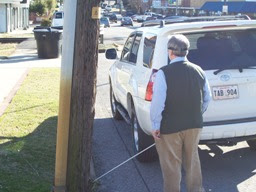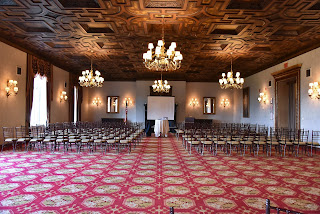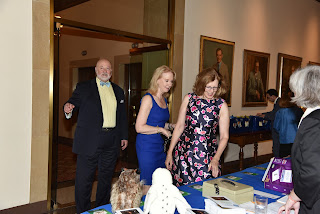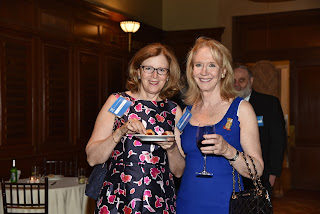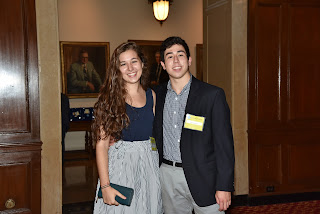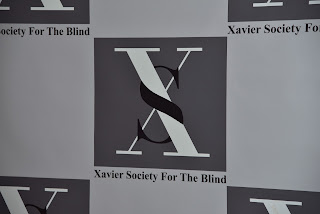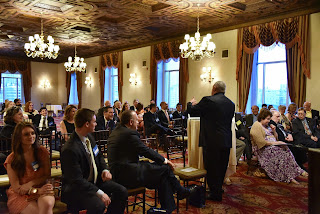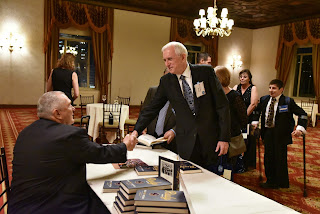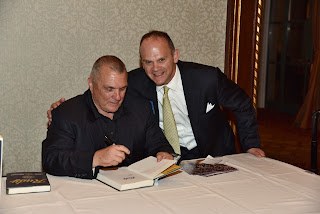For two weeks in January I did nothing extraordinary.
 I walked through the streets of a small town in northern
I walked through the streets of a small town in northern
And I did it all as a blind man, wearing sleep shades. I did
it in the company of 30 other men and women who are blind, either totally or
with partial sight. I did it with teachers who are mostly blind (a few have
sight). All the students are taking the 9-month version of the program I was
in, and where I walked blocks, they learn to walk miles. I did small projects
in the wood shop, and they will design and build their own projects, including
grandfather clocks and chests and jewelry boxes with drawers. I cooked four or
five dishes, they will have worked their way through a complex series of
cooking projects, including producing a meal for 8 and a meal for 40, planning
and cooking and serving, and staying within a budget.
What’s important is that all of this is nothing extraordinary.
That’s the philosophy of the Louisiana
Center for the Blind where I was a
guest, and of several similar centers around the U.S. They believe that a blind
person can do almost anything a sighted person can, with the proper training
and occasionally modified equipment. There should be nothing unusual or
extraordinary about a blind person cooking or building a grandfather clock,
writing a novel or sending an email or going shopping.
That’s a philosophy I share. But saying that is one thing,
and crossing a busy street when you cannot see, trusting on your ears and your
training is something else. The first time I did it, it felt extraordinary. The
first time I successfully cooked a meal while wearing my sleep shades, it felt,
if not extraordinary, certainly as though I had accomplished something.
 I am a Jesuit priest, and my current assignment is Chairman
of the Xavier Society for the Blind in
I am a Jesuit priest, and my current assignment is Chairman
of the Xavier Society for the Blind in
For any missionary, the first step is to learn to speak the
language. That means learning the grammar and the vocabulary, but it also means
learning the culture and the customs of the place, and how to tell the story in
ways that the local people can best understand. You should do this by living in
the place, but sometimes all you can do is visit. While
you don’t become a native by visiting a country or a city for two weeks, you
can explore the basic geography, learn how to speak a few words, sample the
cuisine.
So for two weeks in January, I went to the Louisiana School
Sighted people do it every day, and that’s what my time
taught me. When the day comes when sighted people take for granted that a blind
person can navigate a New York
City street , or cook a meal, or fix a toilet, we
all will have taken a major step forward. On January 29th of this
year, a blind man drove a modified car around the race track at Daytona
Speedway. The car did not drive itself; he drove the car. That was an
extraordinary moment. Some day that a blind man drives a car may be no more
extraordinary than a blind person playing golf, or designing and building a
rocking chair, or running her own restaurant. All those things are being done
today by blind people, and as technology provides more access to information
and opportunity, blind people are, and should be, taking on more positions,
accepting greater challenges, moving into positions of real leadership.
God willing, that will be nothing extraordinary.

